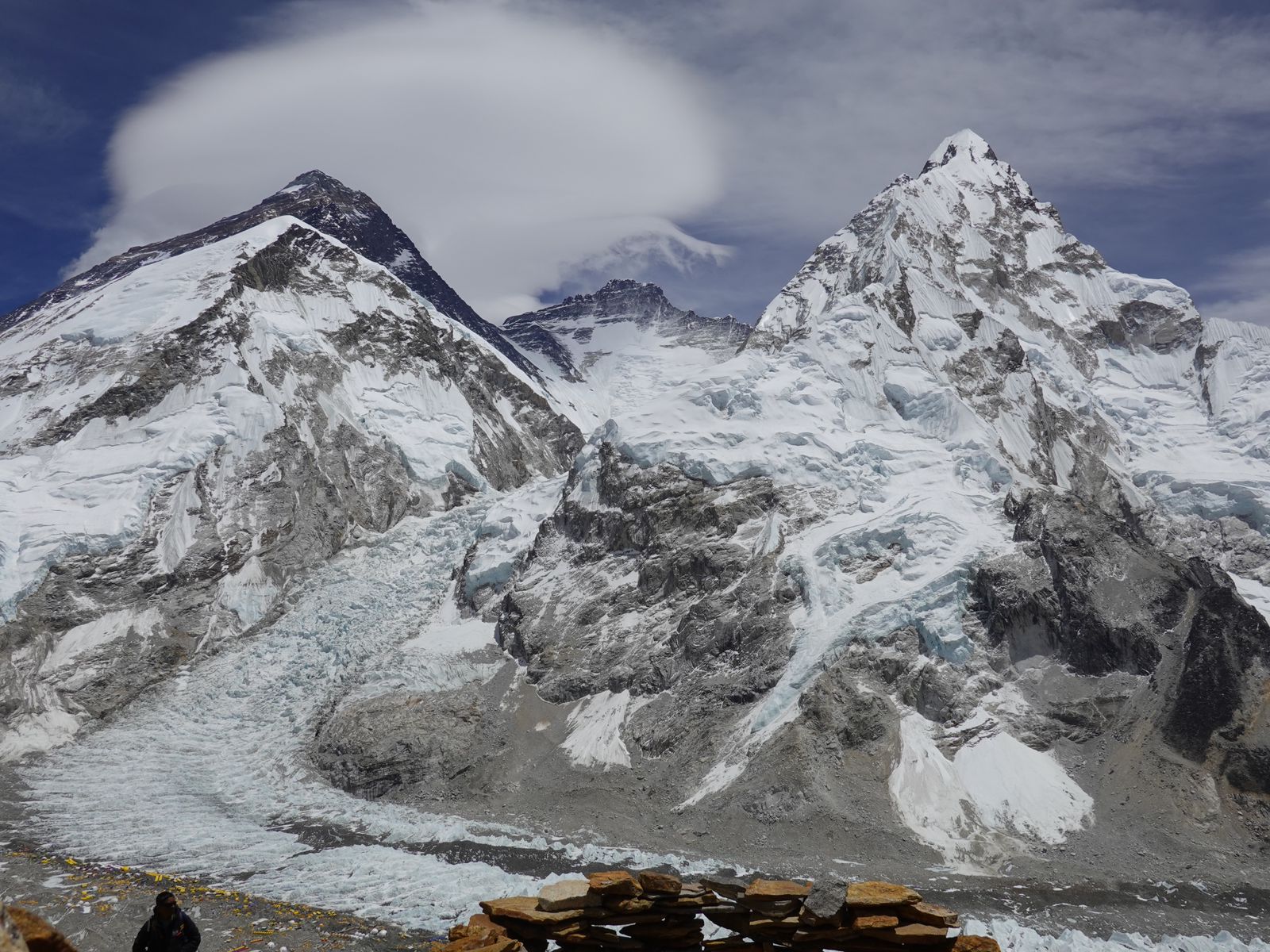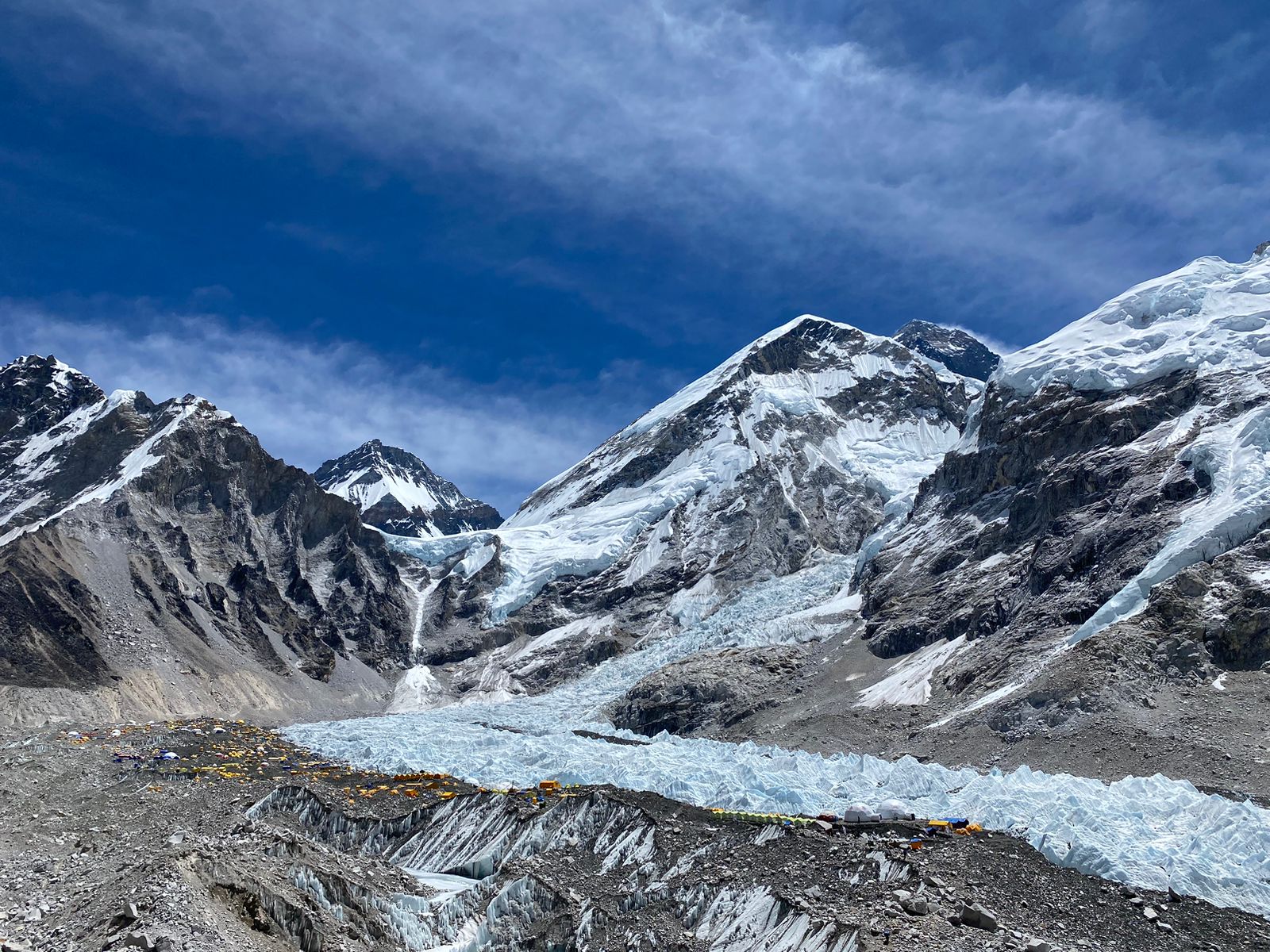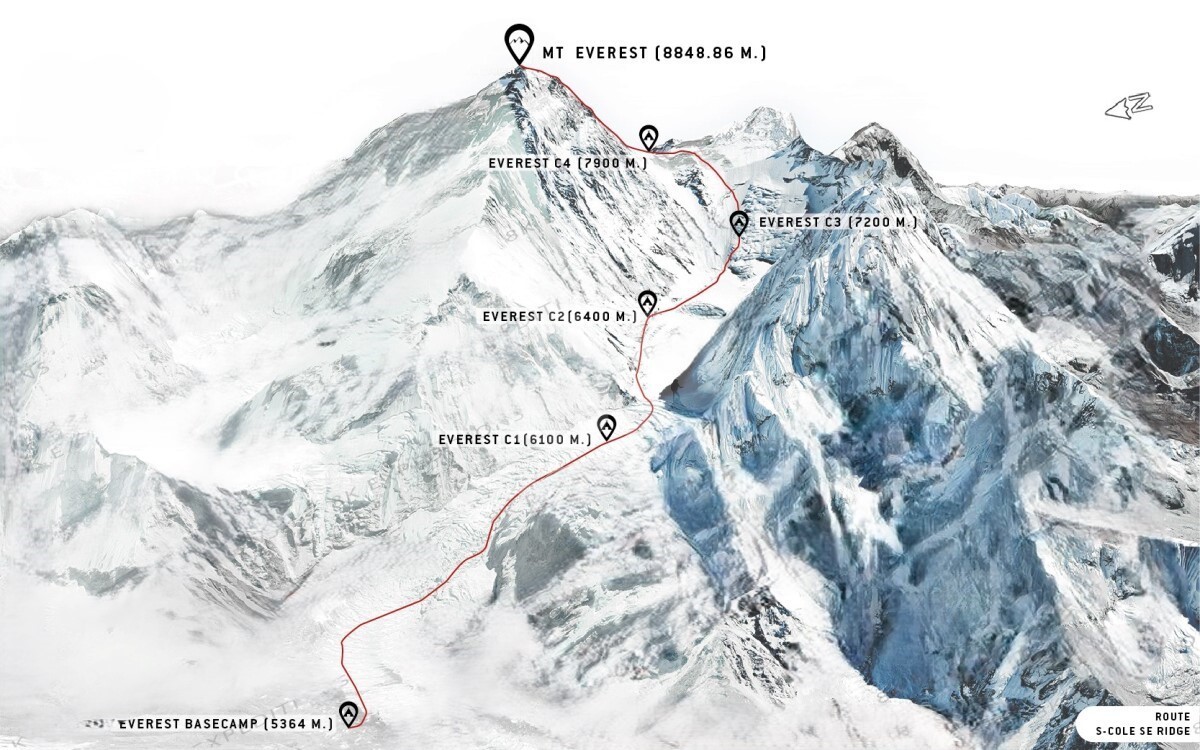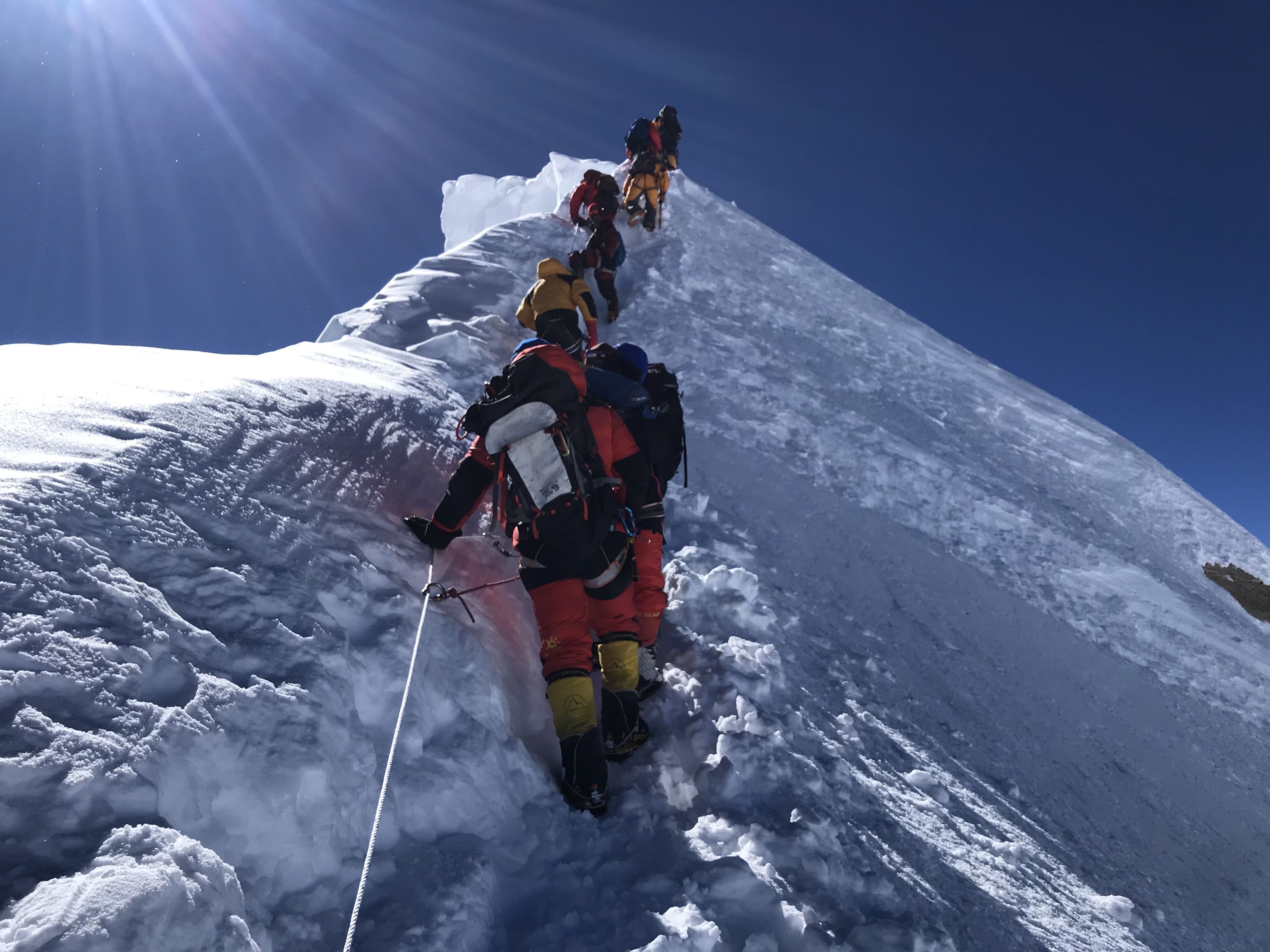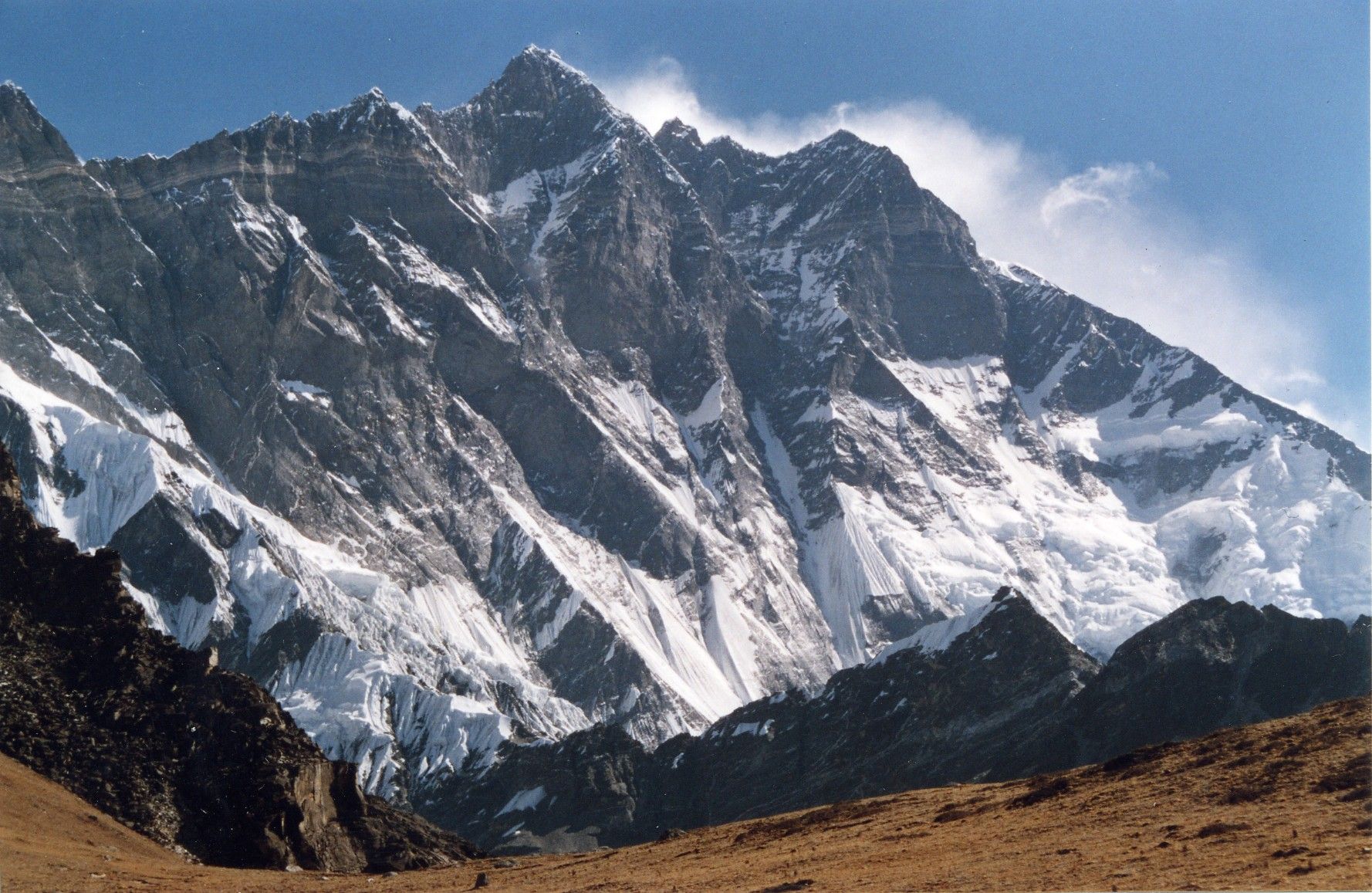The Mount Everest Expedition is an opportunity to climb the highest mountain in the world, following in the footsteps of legendary mountaineers. It’s a challenging journey that requires good physical fitness and preparation, but also offers breathtaking scenery, cultural immersion, and a chance to stand on the “roof of the world.”
Mount Everest, standing tall at an awe-inspiring 8848.86 meters (29,031.69 feet), is the crown jewel of the Himalayan range and the highest point on Earth. Nestled between Nepal and Tibet, this colossal peak beckons adventurers and explorers from around the globe, its majestic presence an embodiment of nature’s grandeur. The exact coordinates of Mount Everest’s peak are 27°59′17″ North latitude and 86°55′31″ East longitude.
Named after Sir George Everest, the British surveyor-general of India, the mountain is known locally as Sagarmatha in Nepal (which means “goddess of the sky”, or “the Head in the Great Blue Sky”, being derived from “sagar”, meaning “sky”, and “matha”, meaning “head”), Chomolungma in Tibet (which means “Holy Mother” or “Goddess Mother of the World” or “Goddess of the Valley”), and other documented local names include “Deodungha” (“Holy Mountain”), and Peak XV. Its summit, the highest point on the planet, has long been a symbol of human endurance, determination, and the relentless pursuit of the extraordinary.
Mount Everest’s challenging and unforgiving terrain has lured mountaineers for decades, making it the ultimate test of physical and mental resilience. The journey to its summit is a grueling odyssey, taking trekkers through picturesque landscapes, quaint Sherpa villages, and breathtaking vistas of snow-capped peaks.
The Everest region, home to diverse flora and fauna, is a testament to the delicate balance of nature. The mountain serves as a vital water source for millions, and its surrounding valleys are enriched with unique biodiversity, creating a rich tapestry of life in one of the world's most extreme environments.
As a beacon of adventure and exploration, Mount Everest continues to captivate the human spirit. Its allure extends beyond the mountaineering community, drawing travelers seeking the unparalleled beauty of the Himalayas and the cultural richness of the Sherpa people. The Everest Base Camp trek, a popular route for those not aiming for the summit, offers a glimpse into the world of high-altitude adventure without the technical challenges of the summit attempt.
Despite its magnetic appeal, Everest demands respect and careful consideration. The risks associated with high-altitude climbing are substantial, and every ascent is a testament to the collaboration between humans and the formidable forces of nature.
Mount Everest, with its towering peaks and breathtaking panoramas, remains an icon of the Earth's natural wonders. Its silent majesty, concealed within the Himalayan folds, invites those who seek to conquer not just the summit but also the limits of their capabilities. Whether viewed from a distance or conquered up close, Mount Everest stands as a reminder of the boundless possibilities that nature offers to those who dare to dream and explore.
